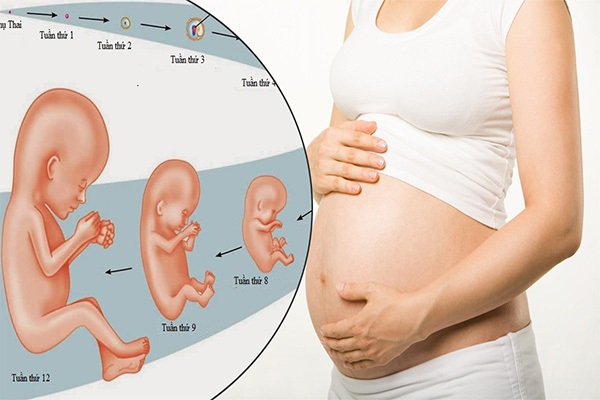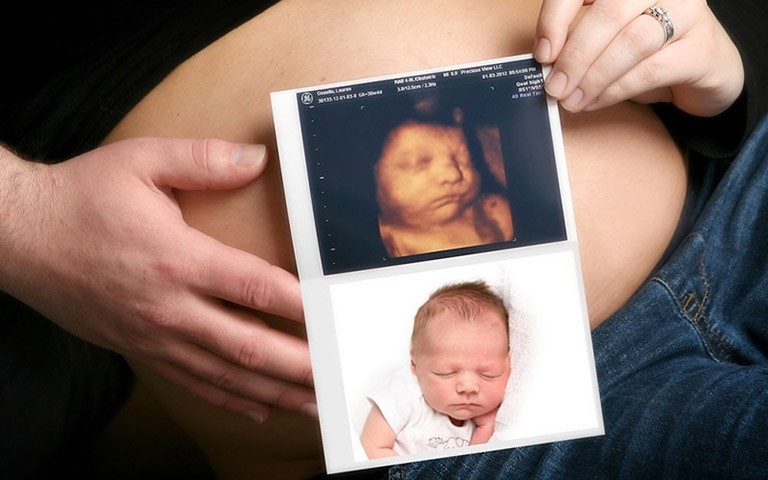The factors that can affect the weight of the fetus include:
1. Physical Characteristics of Parents
Scientific studies have shown that genetic factors from parents determine 23% of the child’s future physique. Therefore, if the parents are tall, the child is more likely to be larger than the average standard, and vice versa.

However, genetics is not the main determining factor for the future development of height and weight in children. Other important factors such as nutrition for children and the environmental habits of children also have a significant impact.
2. Maternal Health Conditions
Thin or short mothers have a higher risk of giving birth to underweight babies compared to tall mothers. In addition, mothers with conditions like gestational diabetes or high blood pressure can affect the blood supply and nutrition provided by the mother to the fetus. Therefore, the fetus may suffer from malnutrition.
Furthermore, gestational diabetes can not only be dangerous to the mother but also cause abnormal growth and increased weight in the fetus compared to the standard weight.
The number of fetuses also affects the weight of the fetus.
3. Fetal Birth Defects
According to experts, the weight of the fetus is determined by factors such as head circumference, abdominal circumference, and length of thigh bone. Therefore, if the fetus in the womb has any defects, it may affect other body parts as well as the weight.
4. Abnormal Umbilical Cord
The umbilical cord is responsible for transporting nutrients from the mother to the fetus. If there are abnormalities in the umbilical cord, it can significantly affect the ability to supply blood and nutrients to the fetus. This can have a serious impact on the weight of the fetus.
5. Placental Abnormalities
The placenta contains the decidua, which is the main source of nutrition for the fetus. The villi are immersed in the decidua, and through the villi, the fetus receives the mother’s nutrients through the umbilical cord. If the function of the placenta is compromised, the process of exchanging nutrients from the mother to the fetus is greatly reduced. In this case, the fetus may suffer from stunted growth and development.
6. Number of Fetuses
Mothers carrying twins or multiple fetuses often have lighter babies compared to those carrying a single fetus.
Diet during pregnancy also affects the weight of the fetus.

7. Measurement Devices
If the equipment used in clinics or the accuracy of the doctor’s techniques is questionable, the weight measurement of the fetus may not reflect the actual weight. In addition to ultrasound, doctors can estimate the weight of the fetus quite accurately by measuring the height of the uterus and the mother’s belly to reduce errors in fetal weight estimation.
8. Nutrition During Pregnancy
If the mother’s diet during pregnancy is poor and lacks sufficient nutrients, it becomes difficult for the fetus to develop optimally. Pregnancy is one of the three crucial stages for optimal height development in children.
Above are some factors that can affect the weight of the fetus. The weight of the fetus reflects the daily development of the little angel in the mother’s womb. Therefore, it is important to observe changes in the weight of the fetus to provide timely supplementation of nutrients for the fetus.





































